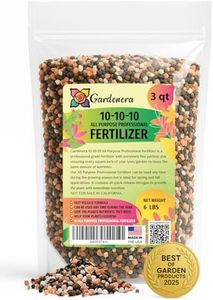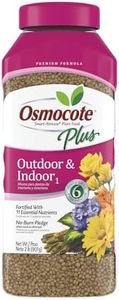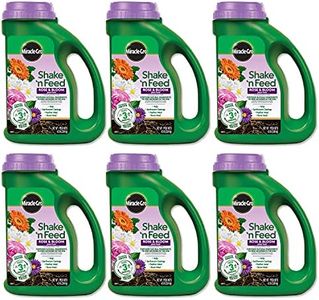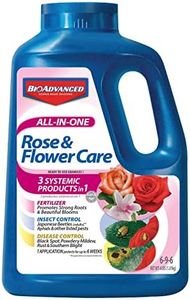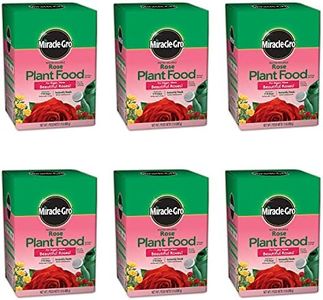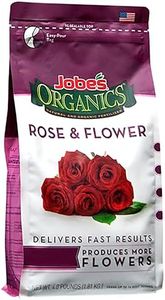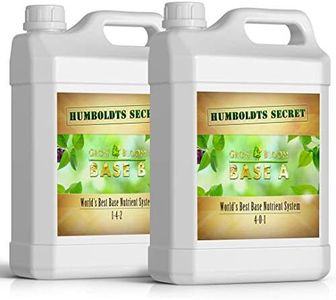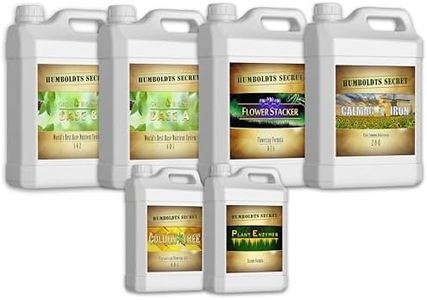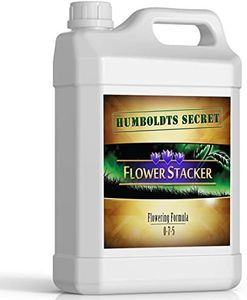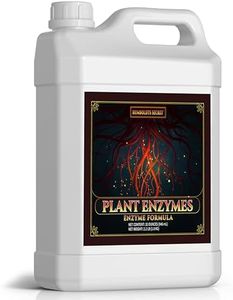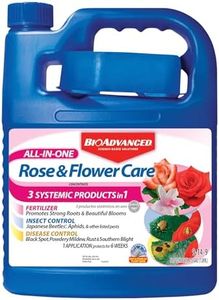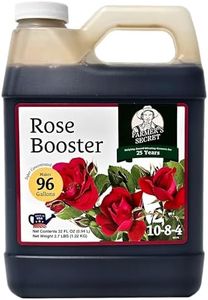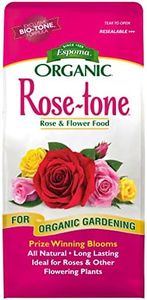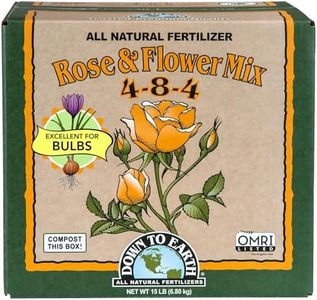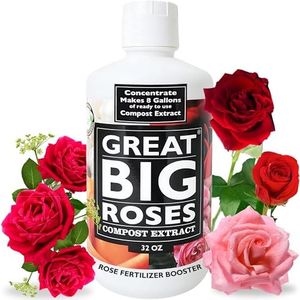10 Best Rose Fertilizers 2026 in the United States
Our technology thoroughly searches through the online shopping world, reviewing hundreds of sites. We then process and analyze this information, updating in real-time to bring you the latest top-rated products. This way, you always get the best and most current options available.

Our Top Picks
Winner
Osmocote Smart-Release Plant Food Plus Outdoor & Indoor₁, Granular Fertilizer with 11 Essential Nutrients, 2 lbs.
Most important from
4040 reviews
The Osmocote Smart-Release Plant Food Plus is a slow-release granular fertilizer that supplies 11 essential nutrients to plants, including roses, for up to six months. Osmocote’s formula is designed to meet the general nutritional needs of a wide range of plants, making it a versatile choice if you grow roses alongside other plants. Its key strength lies in the smart-release coating, which delivers nutrients gradually, reducing the risk of overfeeding or burning your plants—a common concern with synthetic fertilizers. This feature means you only need to apply it once every six months, which is convenient and less labor-intensive.
It is a synthetic fertilizer rather than organic, so if you prefer natural gardening methods, this might not be the perfect fit. However, it does include micronutrients, which are beneficial for healthy rose growth and vibrant blooms. One container covers about 75 square feet, making it suitable for small to medium rose gardens. Because it is a general-purpose fertilizer, it may not provide the precise nutrient balance that some rose specialists recommend, especially if your roses have specific needs like higher phosphorus for better flowering. Also, its synthetic nature means it won’t improve soil biology like organic options would.
For rose gardeners seeking an easy-to-use, long-lasting fertilizer with balanced nutrients and minimal risk of damage, Osmocote Smart-Release offers a solid and reliable option.
Most important from
4040 reviews
Miracle-Gro Shake 'N Feed Rose & Bloom Plant Food, Plant Fertilizer, 4.5 lbs. (6-Pack)
Most important from
5307 reviews
Miracle-Gro Shake 'N Feed Rose & Bloom Plant Food is designed to support roses and other flowering plants by promoting more blooms and vibrant color. It contains natural ingredients that help improve soil health, which is beneficial for those who prefer products with organic qualities, although it is technically a synthetic blend rather than fully organic. One of its standout features is the slow-release formula that feeds plants for up to three months, reducing how often you need to apply fertilizer. This convenience helps take the guesswork out of feeding schedules, making it user-friendly for gardeners of all experience levels.
The granule form is easy to apply whether your roses are in the ground or containers. This fertilizer is suitable for those who want a reliable, low-maintenance feeding option that promotes blooming and healthy growth without complicated application steps.
Most important from
5307 reviews
BioAdvanced All-In-One Rose and Flower Care I, Granules, 4 lb
The BioAdvanced All-In-One Rose and Flower Care is a well-rounded choice for those looking to enhance their rose plants' health with minimal effort. Priced for convenience, this granule-based fertilizing product also serves as an insect killer and fungicide, making it a three-in-one solution. It works by promoting strong roots and vibrant blooms thanks to its effective formulation. The fertilizer is synthetic, which ensures a quick uptake of nutrients by the plants but may not be suitable for those specifically seeking organic alternatives.
The product also controls pests like Japanese Beetles, Aphids, and Leafhoppers, and combats diseases such as Black Spot and Powdery Mildew with its fungicidal properties. One notable advantage is its rainproof protection that lasts up to six weeks, reducing the need for frequent reapplication. However, the restriction in New York might be a limitation for some users.
The granule form makes it easy to apply, and it can be used for both indoor and outdoor plants, adding to its versatility. The product size is manageable (4 pounds) and should cover a reasonable number of plants. It's a strong choice for gardeners looking for an all-in-one rose care solution, especially those dealing with pest and disease issues, though it may not meet the needs of organic gardeners.
